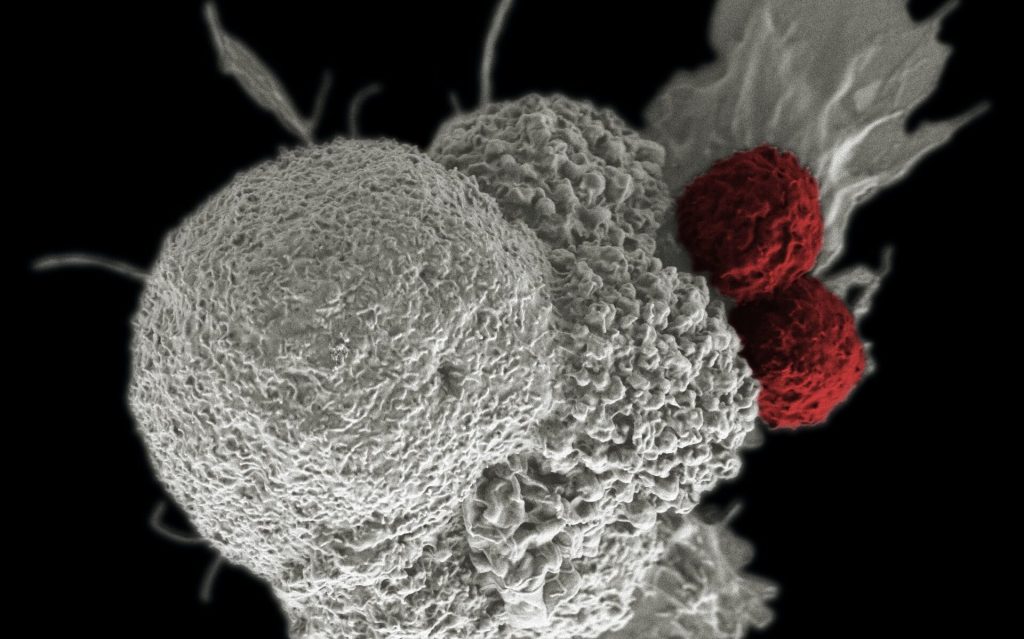Study Reveals Natural Killer Cells’ Fuel Source

Scientists have discovered how natural killer (NK) cells fuel their activities when fighting infections, which will in turn help inform the development of immune therapies.
When it comes to dealing with infections and cancer, if T cells are like a team of specialist doctors in an emergency room, then NK cells are the paramedics: They arrive first on the scene and perform damage control until reinforcements arrive. Their existence was revealed in the 1970s when scientists were trying to characterise T cell cytotoxicity.
NK cells belong to our innate immune system, which dispatches these first responders, and they come with a built-in ability to recognise and respond to danger. Learning what powers NK cells is an ongoing area of immunology research, with important clinical implications.
“There’s a lot of interest right now in NK cells as a potential target of immunotherapy,” said Joseph Sun, an immunologist in the Sloan Kettering Institute. “The more we can understand what drives these cells, the better we can program them to fight disease.”
First responders
Previous studies have shown that aerobic glycolysis provides the energy for T cells to carry out their protective activities. But it was not known whether NK cells use this form of metabolism in performing their functions.
Dr Sun and his colleagues studied NK cells in animal models instead of in vitro, in order to find out, in a natural setting, what type of metabolism NK cells use and compare it to T cells. They discovered that NK cells increase aerobic glycolysis about five days before T cells respond with their own glycolytic surge.
“This fits with the idea that NK cells are innate immune cells that are really critical for mounting a rapid response,” said Research Fellow Sam Sheppard.
The findings are relevant to ongoing efforts to use NK cells as immunotherapy in people with cancer and other conditions. These are particularly relevant for procedures that make use of NK cells as a form of cell therapy—when cells are grown outside the body and then introduced back into the patient.
Finding a delicate balance
“If you’re growing these cells in a dish and you push them to divide too rapidly, they may not have as much potential to undergo aerobic glycolysis when you put them into a patient,” Dr Sheppard explained.
For researchers designing clinical trials, the goal is to find a balance between encouraging NK cells to multiply and preserving their stamina. These NK cells are the paramedics of our immune system, so it’s important to keep them speedy and responsive.
The findings were reported June 1, 2021, in the journal Cell Reports.
Source: Eureka Alert

